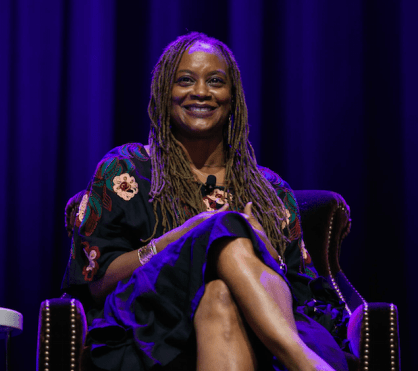Editor’s Note: This dual interview in our Feminist Giving IRL series features Bridgit Antoinette Evans and Tracy Van Slyke, who are, respectively, the Chief Executive Officer and Chief Strategy Officer of the Pop Culture Collaborative, a philanthropic resource and funder learning community.

1. What do you wish you had known when you started out in your profession?
Bridgit Antoinette Evans: I wish that I’d been introduced to Octavia E. Butler much earlier in life. Octavia wrote about this concept of “positive obsession,” which she described as “not being able to stop just because you’re afraid and full of doubts.” My mother and her siblings were leaders in the Civil Rights movement in Savannah, and while she fiercely believed that her daughters could be anything we wanted to be in the world, she was very clear that we needed to be improving the world while doing it. I wanted to be an artist, and so, as a teen, I became obsessed with one question: “What is the relationship between a great story and widespread cultural change?”
Read More









